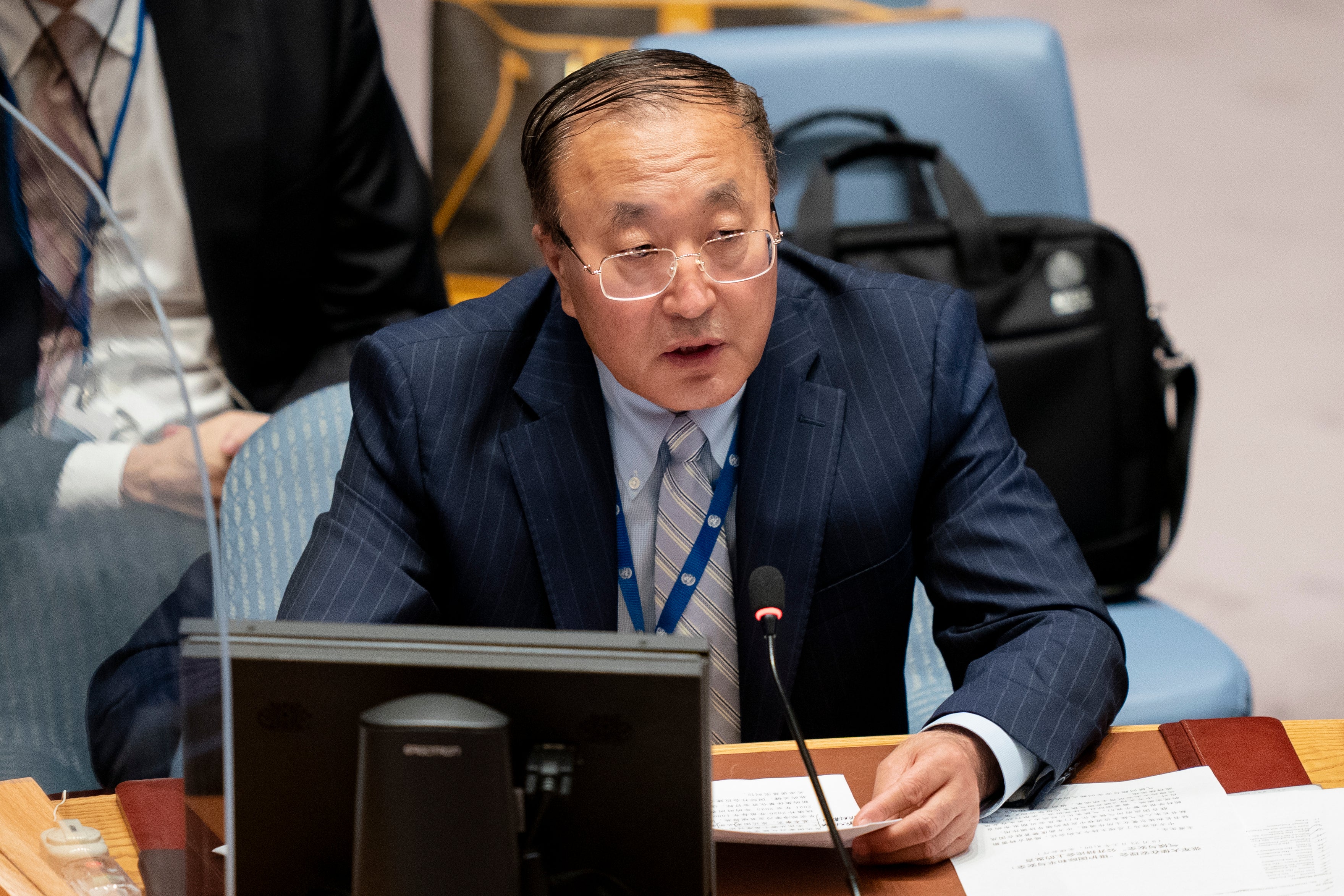China hopes Biden turns statement on no Cold War into action
China’s U.N. ambassador says he hopes President Joe Biden will translate his statement that the United States has no intention of starting a “new Cold War” with China into actions

China’s U.N. ambassador expressed hope Tuesday that President Joe Biden will translate his statement that the United States has no intention of starting a “new Cold War” with China into actions, saying he should avoid “a confrontational approach” and “provocative attacks against China."
“We sincerely hope the U.S. will walk the walk by truly abandoning the Cold War mentality,” Zhang Jun said in a virtual press conference following the annual meeting of world leaders at the U.N. General Assembly, which ended Monday.
"I believe that if both sides walked towards each other, they will be able to see a healthy and stable China-U.S. relationship,” he said. “Otherwise, the concerns will remain there.”
U.N. Secretary-General Antonio Guterres warned just ahead of the week-long meeting that the world could be plunged into a new and more dangerous Cold War if China and the United States didn’t repair their “completely dysfunctional” relationship.
In his speech delivered to leaders in the vast assembly hall a week ago, Biden decried military conflict, insisted the U.S. is not seeking a new version of the Cold War, and stressed the urgency of working together.
Hours later, in a recorded speech, Chinese President Xi Jinping reiterated his nation’s longtime policy of multilateralism.
“One country’s success does not have to mean another country’s failure,” Xi said. “The world is big enough to accommodate common development and progress of all countries.”
The Cold War between the Soviet Union and its East bloc allies and the United States and its Western allies began after World War II and ended with the breakup of the Soviet Union in 1991. It was a clash of two nuclear-armed superpowers with rival ideologies — communism and authoritarianism on one side, capitalism and democracy on the other.
Zhang called the China-U.S. relationship “extremely important:” China is the largest developing country and the U.S. is the largest developed country, and they are the world’s largest economies and permanent members of the U.N. Security Council.
The world benefits from a good China-U.S. relationship, and it “will also suffer from a confrontation between China and the United States,” he said.
Zhang said Beijing has always called for relations between the two countries to be based on “no conflict, no confrontation, mutual respect and win-win cooperation” as well as equality.
However, while China is willing to cooperate with the United States, “we have to also firmly defend our sovereignty, our security and our development rise,” he said.
Zhang also called for strengthened solidarity and cooperation of the five veto-holding permanent members of the Security Council which bear primary responsibility for ensuring world peace and security.
Russian Foreign Minister Sergey Lavrov said Saturday that the major powers have a “great responsibility” to negotiate and make compromises on the critical issues facing the world and that Russia is now “revitalizing” its proposal for a summit of the five permanent members of the U.N. Security Council — Russia, China, U.S., Britain and France. He said discussions are under way on specific questions for an agenda, and “we may perhaps begin with an online meeting.”
Zhang said China, Russia and France have all proposed a summit of the so-called P5 powers. Discussions are still taking place and there is no decision yet, “so we will continue to work on that,” he said.